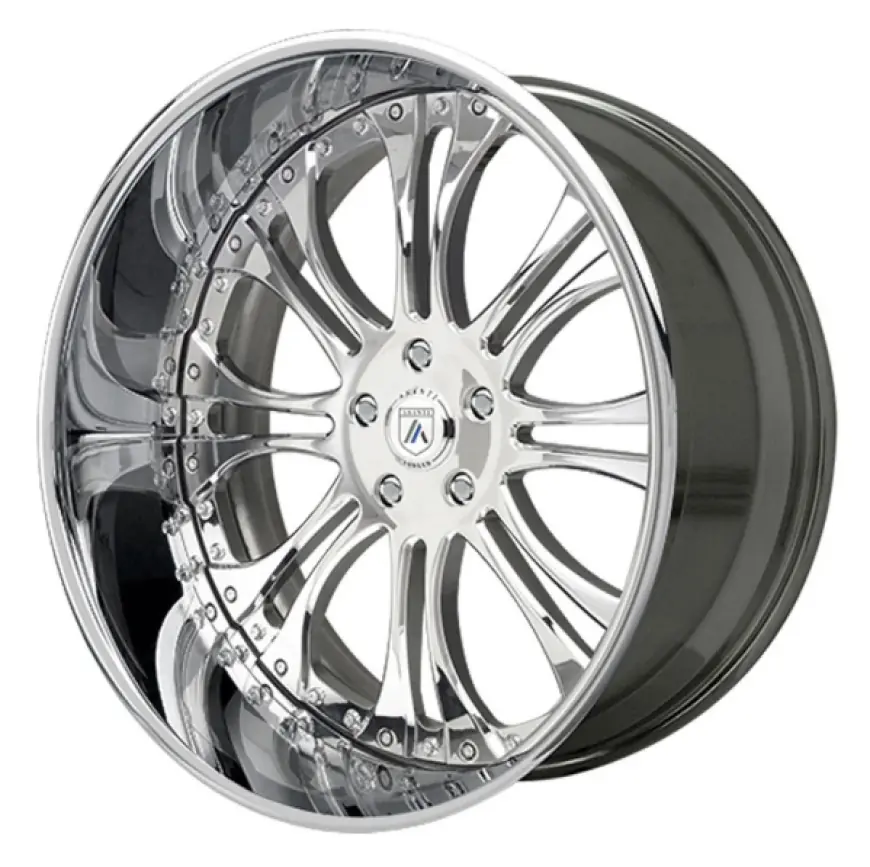Preventing Damage to Custom Rims Through Proper Maintenance Techniques
Custom Rims

Custom rims are more than just accessories; they're an investment that elevates the aesthetic appeal and potentially even the performance of your vehicle. However, unlike standard rims designed for durability and mass production, custom rims often incorporate unique materials, intricate designs, and specialized finishes, making them more susceptible to damage if not properly maintained. This article delves into essential maintenance techniques to protect your custom rims and keep them looking their best for years to come.
Understanding the Vulnerabilities of Custom Rims
Before diving into specific maintenance practices, it's crucial to understand why custom rims require extra care. The materials used in custom rims, such as specific alloys or polished metals, can be more vulnerable to scratches, corrosion, and chemical reactions than standard steel rims. Their often-complex designs can create intricate nooks and crannies where dirt, brake dust, and road salt can accumulate, leading to accelerated degradation. Furthermore, specialized finishes like chrome plating, powder coating, or painted surfaces can be easily damaged by harsh cleaning products or abrasive materials. Recognizing these vulnerabilities is the first step in developing a proactive maintenance approach.
Regular Cleaning: The Foundation of Rim Care
Consistent cleaning is arguably the most important aspect of maintaining custom rims. Brake dust, road salt, and grime buildup can quickly corrode and damage the finish of your rims. Ideally, you should aim to clean your rims every one to two weeks, or more frequently if you live in an area with harsh weather conditions or if you frequently drive on dusty or gravel roads.
When cleaning your rims, avoid using harsh chemicals or abrasive cleaners. Opt for a pH-neutral wheel cleaner specifically designed for your rim's finish. Read the product label carefully and follow the manufacturer's instructions. Apply the cleaner to a cool rim – avoid cleaning immediately after driving as the heat can cause the cleaner to dry too quickly and leave residue. Use a soft-bristled brush or sponge to gently scrub away dirt and grime, paying particular attention to hard-to-reach areas. Rinse thoroughly with clean water and dry with a soft microfiber towel to prevent water spots. Avoid using the same sponge or brush you use for your car's body, as it may contain particles that can scratch your rims.
Protecting Your Rims from Environmental Hazards
Beyond regular cleaning, protecting your rims from environmental hazards is crucial for their longevity. Exposure to road salt, particularly during winter months, can accelerate corrosion and damage the finish. Consider using a wheel sealant or wax specifically designed for rims. These products create a protective barrier against environmental contaminants, making it easier to clean your rims and preventing long-term damage. Apply the sealant or wax according to the manufacturer's instructions, typically after cleaning and drying the rims.
Another environmental hazard to consider is prolonged exposure to sunlight. UV radiation can fade and discolor the finish of your rims, especially if they are painted or coated. If possible, park your car in a garage or shaded area to minimize exposure to direct sunlight. If that's not possible, consider using a car cover to protect your rims from the elements.
Responsible Driving Habits to Minimize Damage
Your driving habits can significantly impact the condition of your custom rims. Avoid driving aggressively over potholes, speed bumps, and other road imperfections. These impacts can bend, crack, or scratch your rims, especially if they are made from lightweight alloys. Be mindful of curbs when parking and maneuvering. Gently approach curbs and avoid rubbing your rims against them, as this can easily cause scratches and scuffs.
Proper tire inflation is also crucial for protecting your rims. Underinflated tires can increase the risk of rim damage when encountering potholes or other road hazards. Regularly check your tire pressure and inflate your tires to the recommended pressure specified in your vehicle's owner's manual or on the tire placard located on the driver's side doorjamb.
Choosing the Right Cleaning Products and Tools
Selecting the right cleaning products and tools is essential for preventing damage to your custom rims. As mentioned earlier, avoid using harsh chemicals, abrasive cleaners, and scouring pads, as these can scratch and damage the finish. Opt for pH-neutral wheel cleaners specifically designed for your rim's material and finish. Always test a small, inconspicuous area first to ensure the cleaner doesn't damage the finish.
Invest in high-quality cleaning tools, such as soft-bristled brushes, microfiber towels, and wheel cleaning mitts. These tools are designed to gently remove dirt and grime without scratching the surface of your rims. Avoid using the same cleaning tools for your car's body, as they may contain abrasive particles that can damage your rims.

Professional Detailing and Specialized Treatments
For more intensive cleaning and protection, consider professional detailing services. Professional detailers have specialized equipment and products to thoroughly clean, polish, and protect your custom rims. They can also apply ceramic coatings or other advanced treatments that provide long-lasting protection against environmental hazards and make your rims easier to clean.
Depending on the type of finish on your custom rims, you may also consider specialized treatments to maintain their appearance. For example, chrome-plated rims may benefit from regular polishing with a chrome polish to remove oxidation and maintain their shine. Powder-coated rims may benefit from a wax or sealant specifically designed for powder-coated surfaces. Consult with a professional detailer or rim specialist to determine the best treatments for your specific rims.
Inspecting and Addressing Minor Damage Promptly
Regularly inspect your custom rims for signs of damage, such as scratches, dents, or corrosion. Addressing minor damage promptly can prevent it from escalating into more serious problems. Small scratches can often be buffed out with a polishing compound designed for your rim's finish. Minor dents can sometimes be repaired by a professional rim repair specialist.
If you notice any signs of corrosion, address it immediately. Clean the affected area with a mild abrasive cleaner and apply a rust inhibitor. You may also consider having the area repainted or refinished to prevent further corrosion. Ignoring minor damage can lead to more costly repairs in the future.
By following these maintenance techniques, you can protect your investment in custom rims and keep them looking their best for years to come. Regular cleaning, protection from environmental hazards, responsible driving habits, and prompt attention to minor damage will ensure that your custom rims continue to enhance the aesthetic appeal and performance of your vehicle.
What's Your Reaction?
 Like
0
Like
0
 Dislike
0
Dislike
0
 Love
0
Love
0
 Funny
0
Funny
0
 Angry
0
Angry
0
 Sad
0
Sad
0
 Wow
0
Wow
0




















































